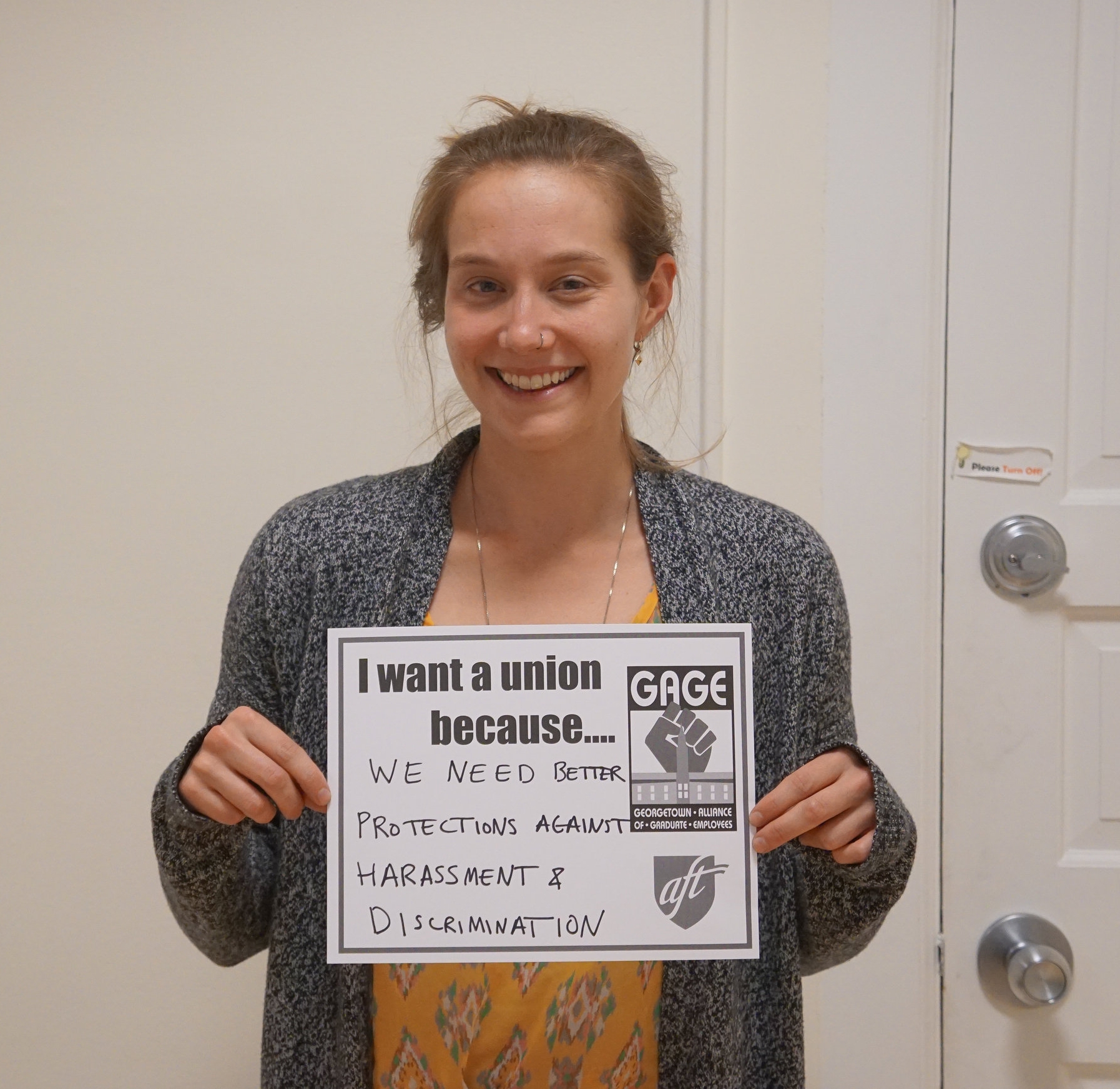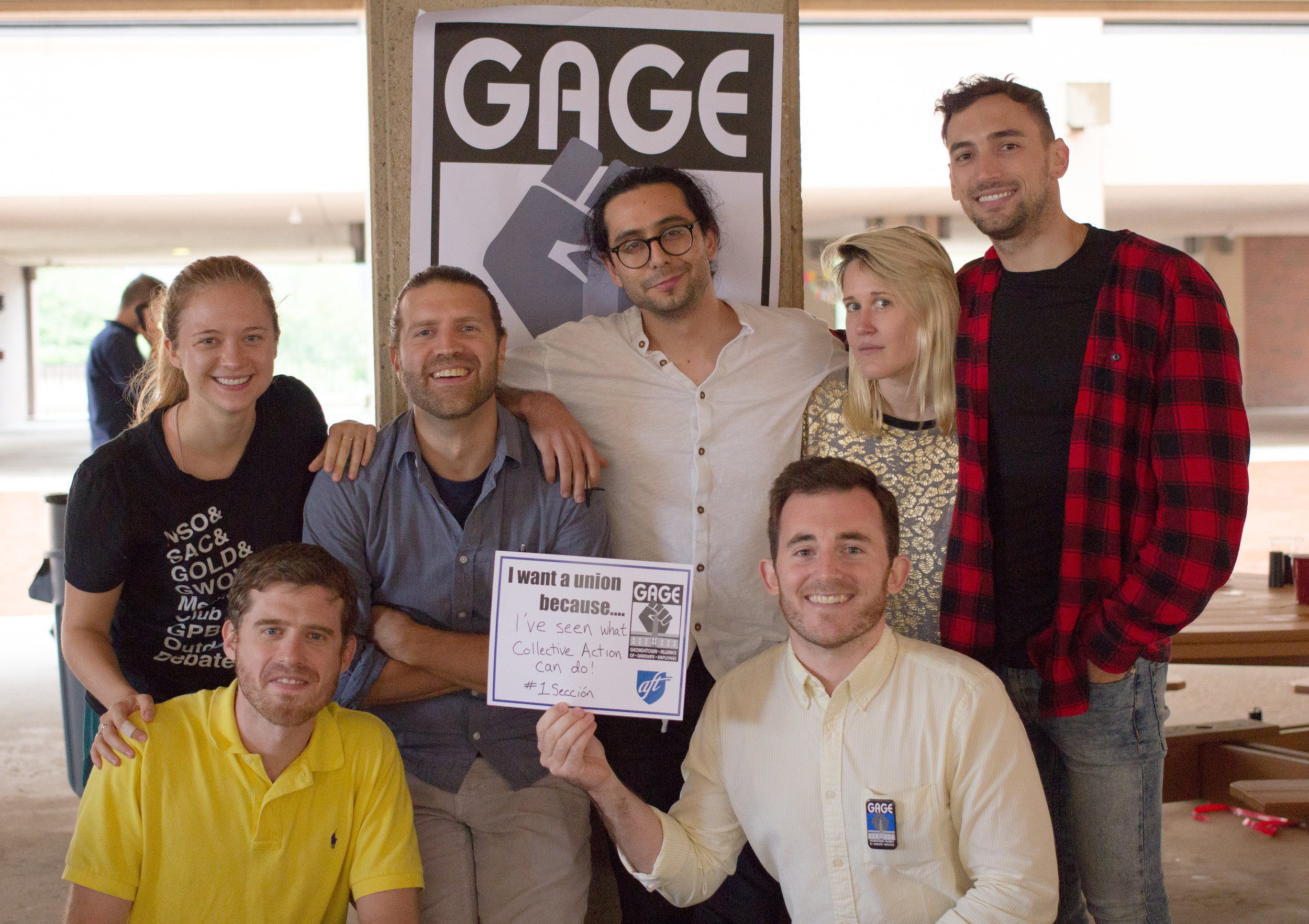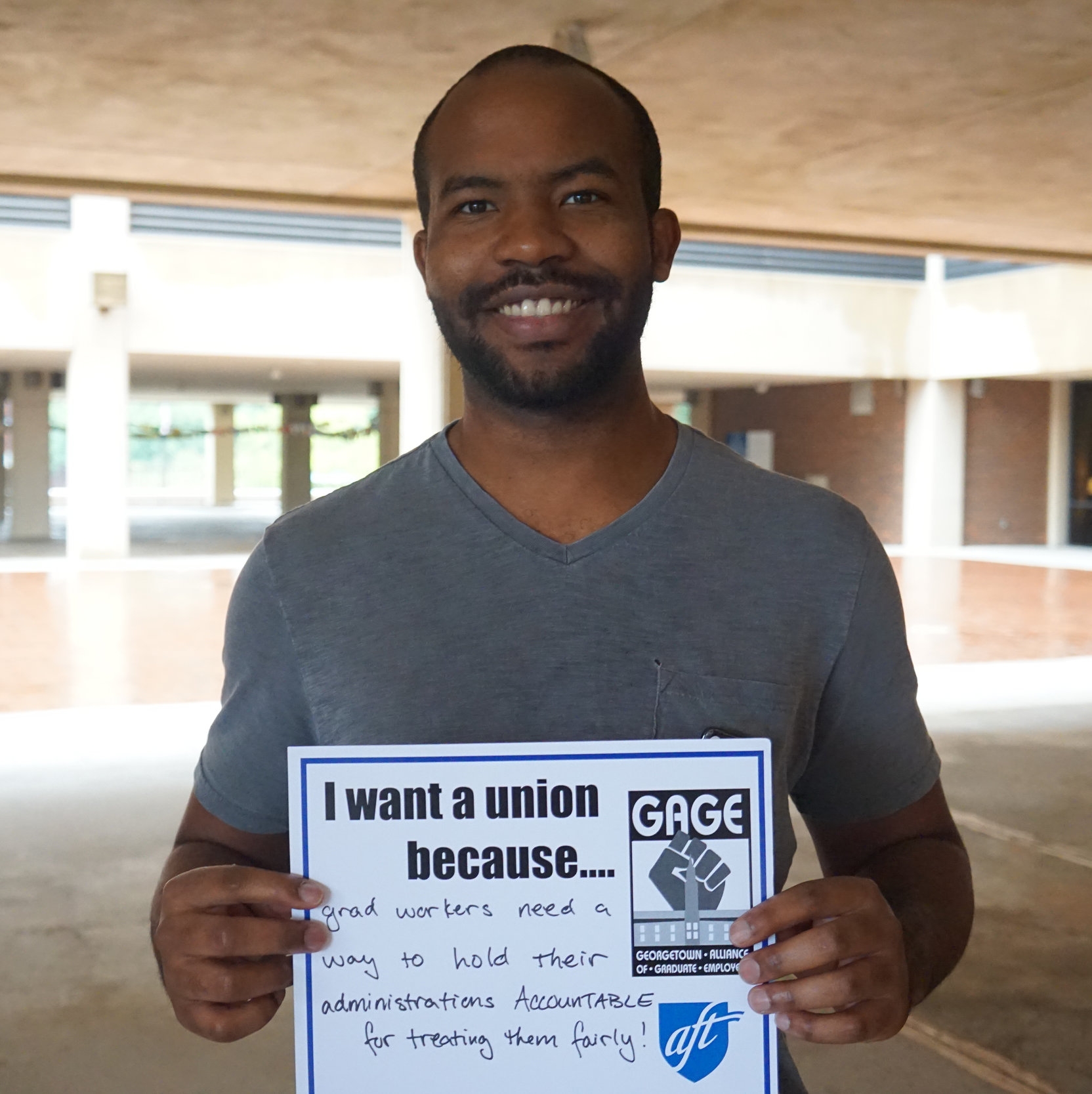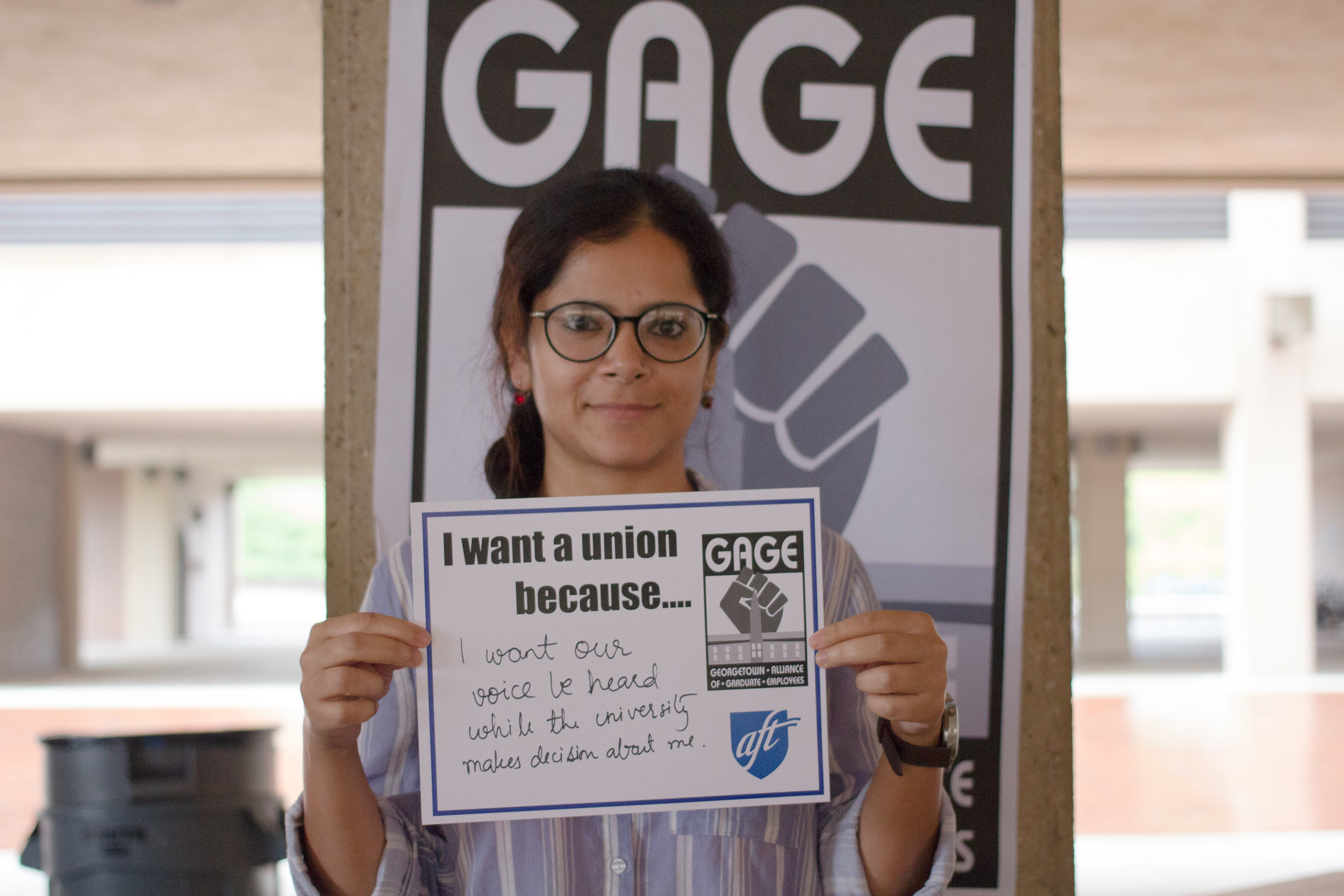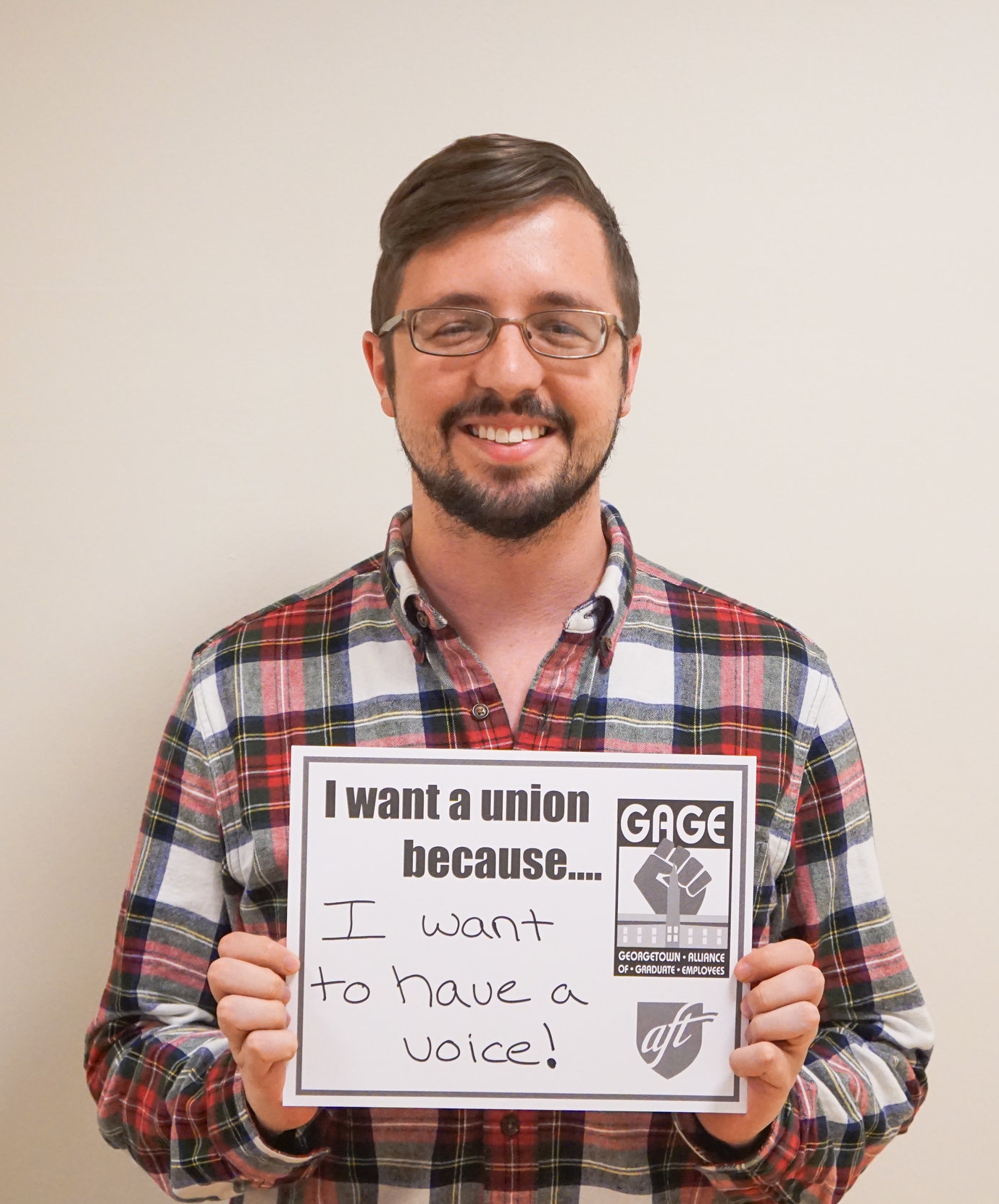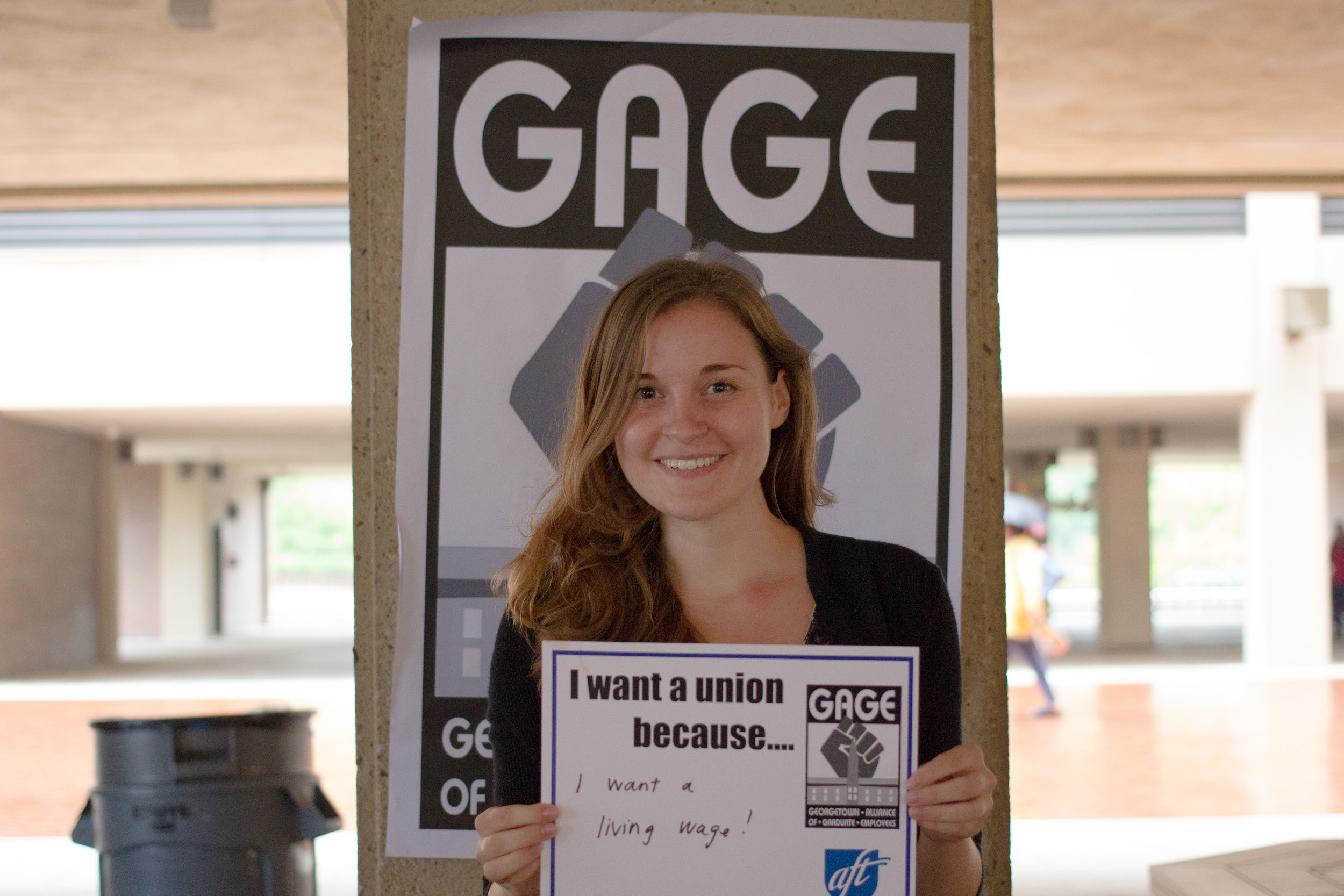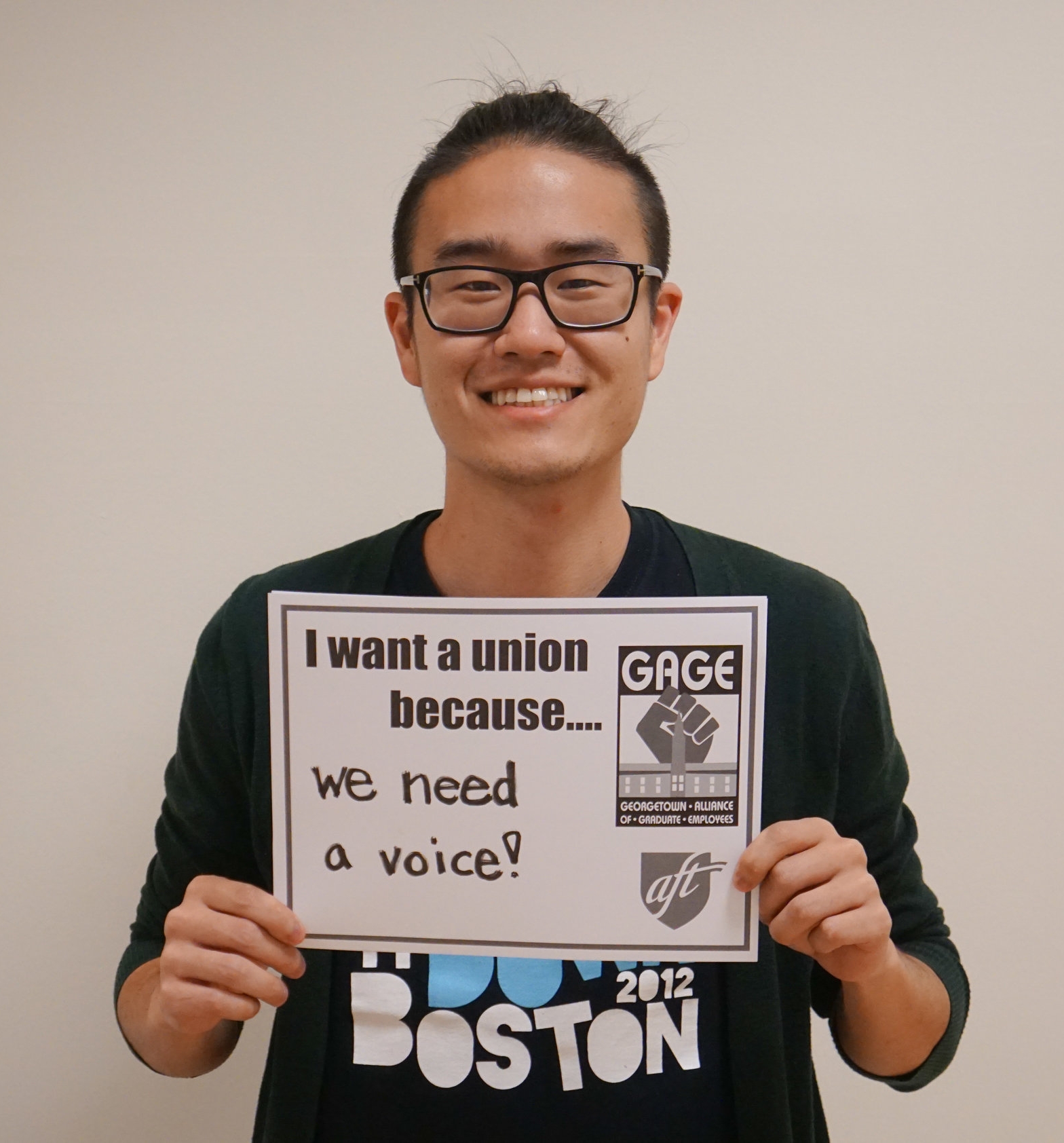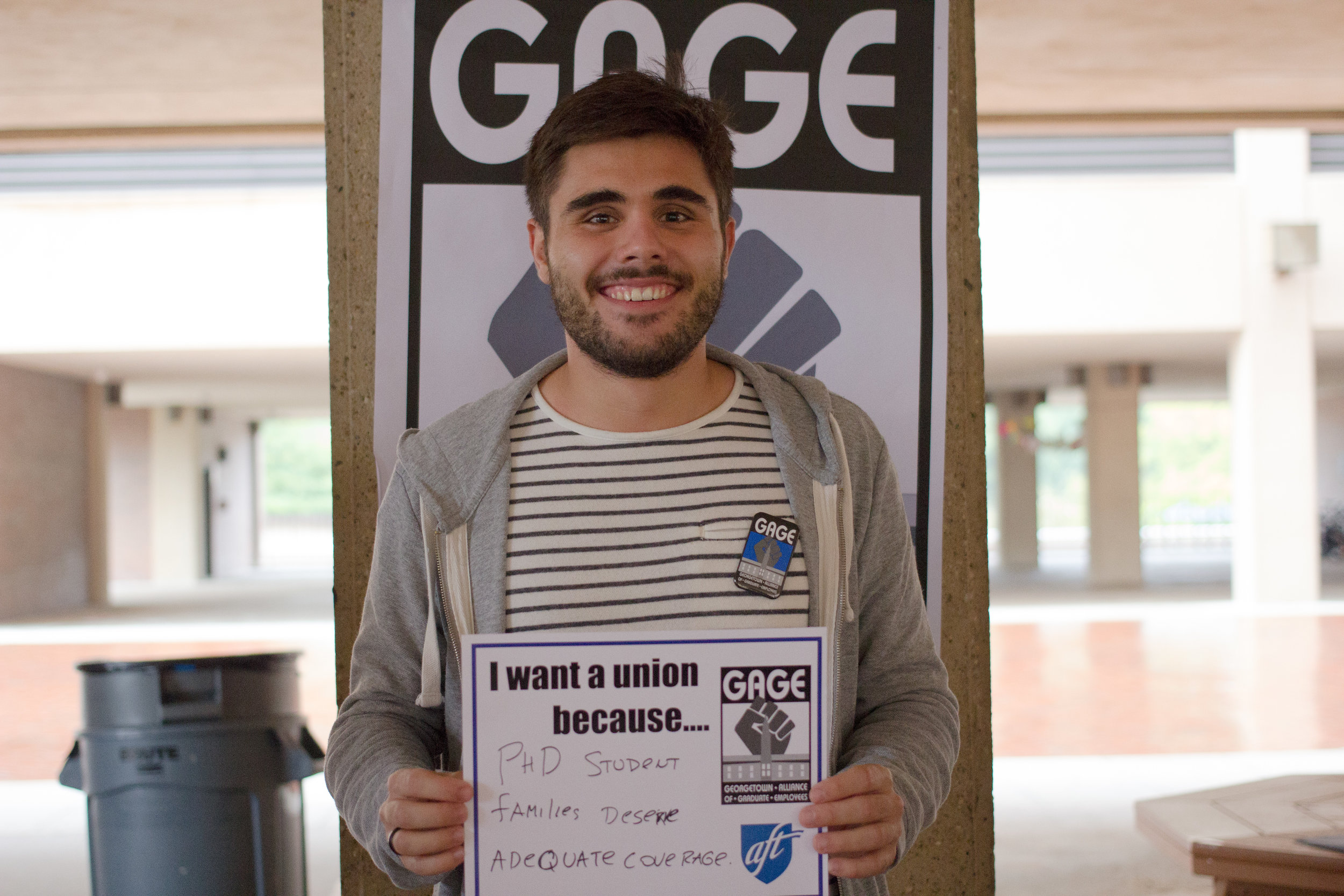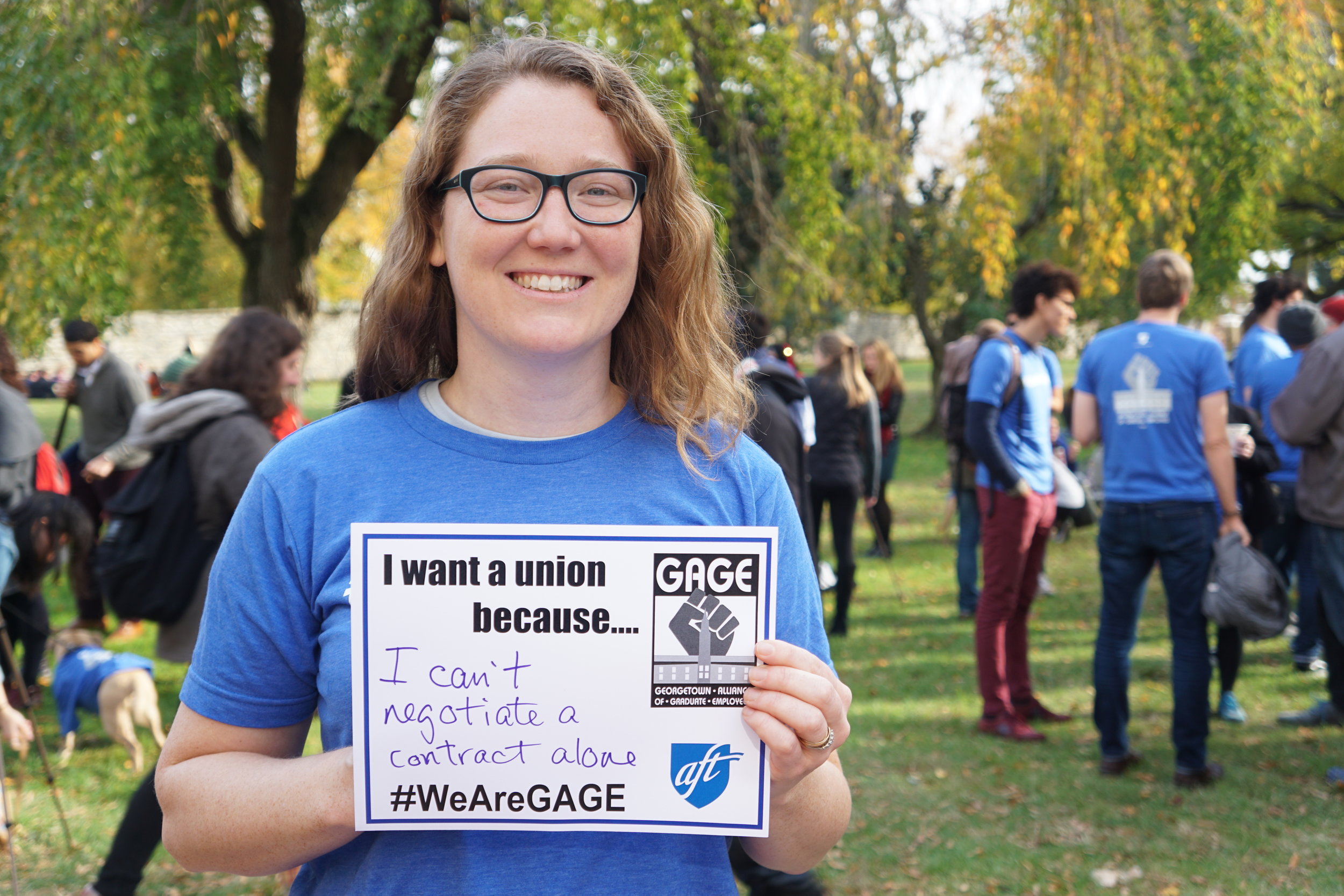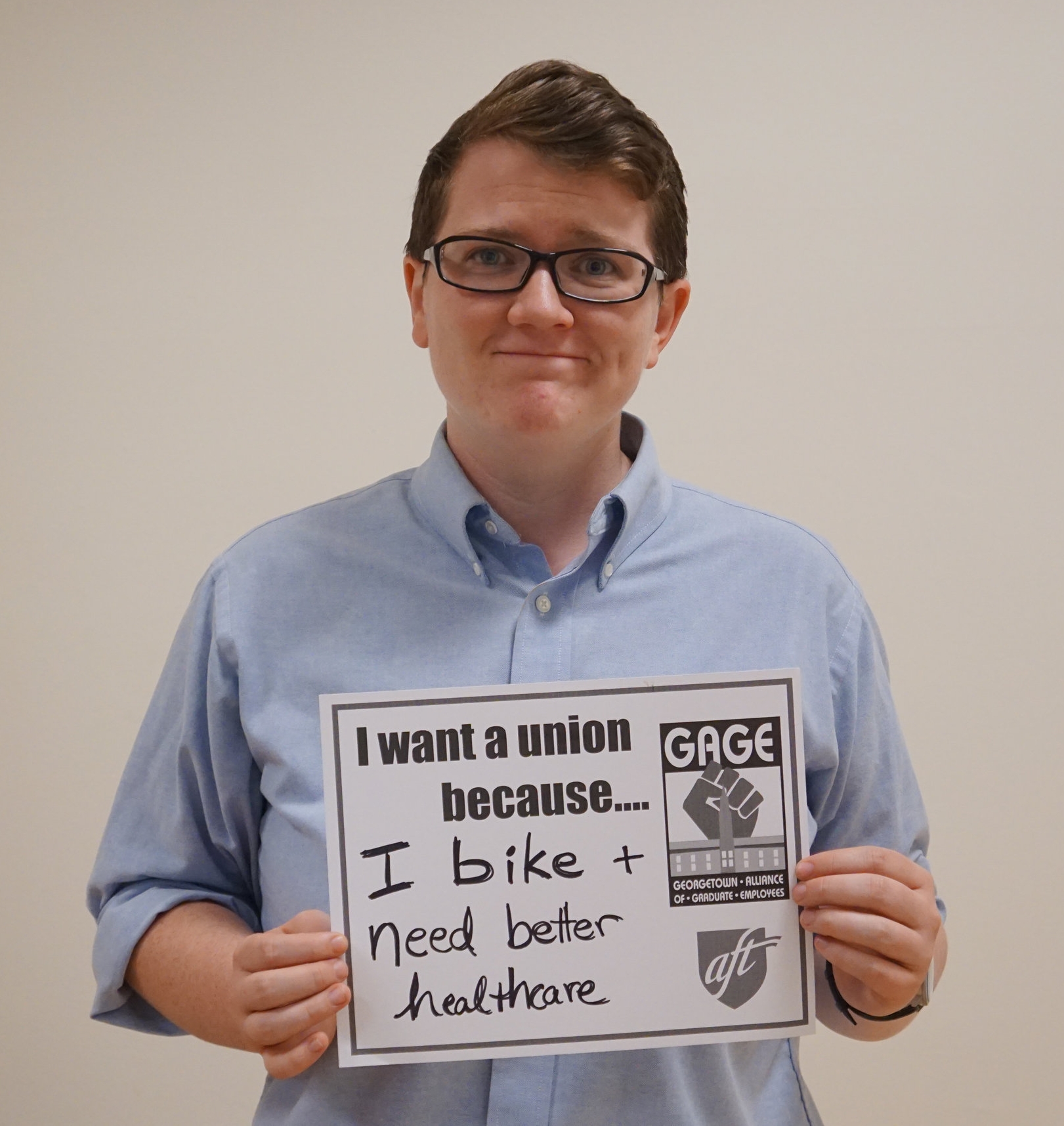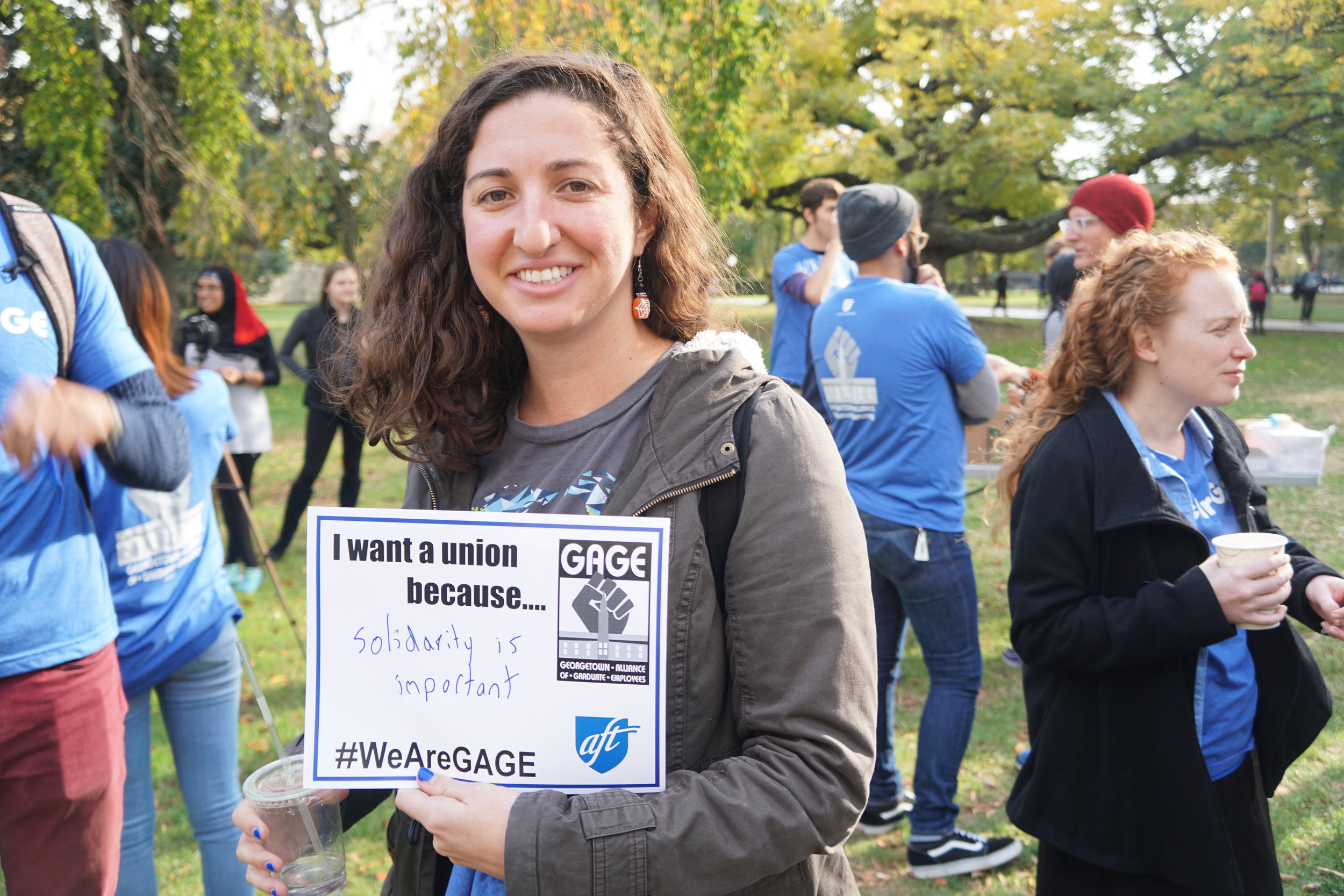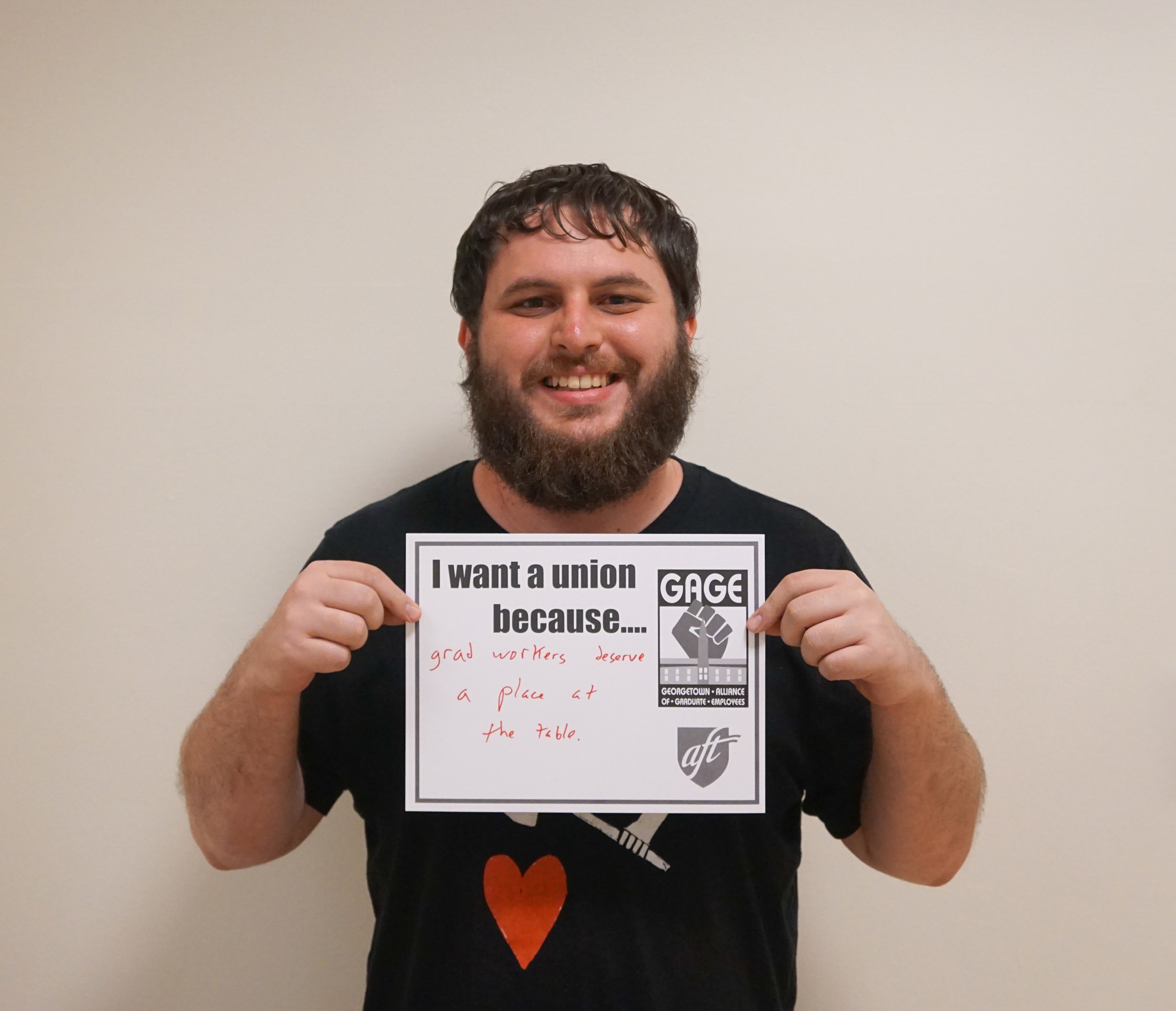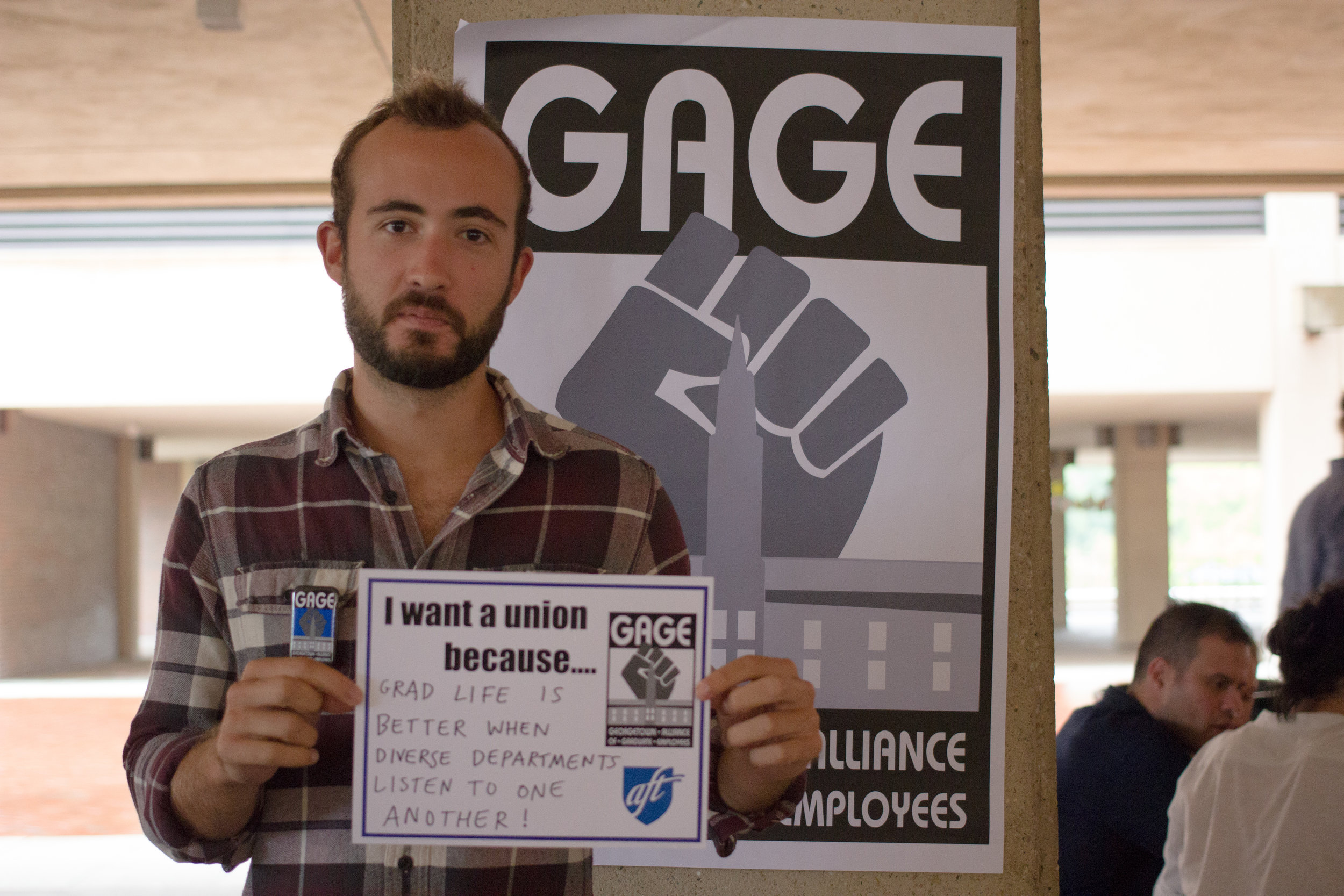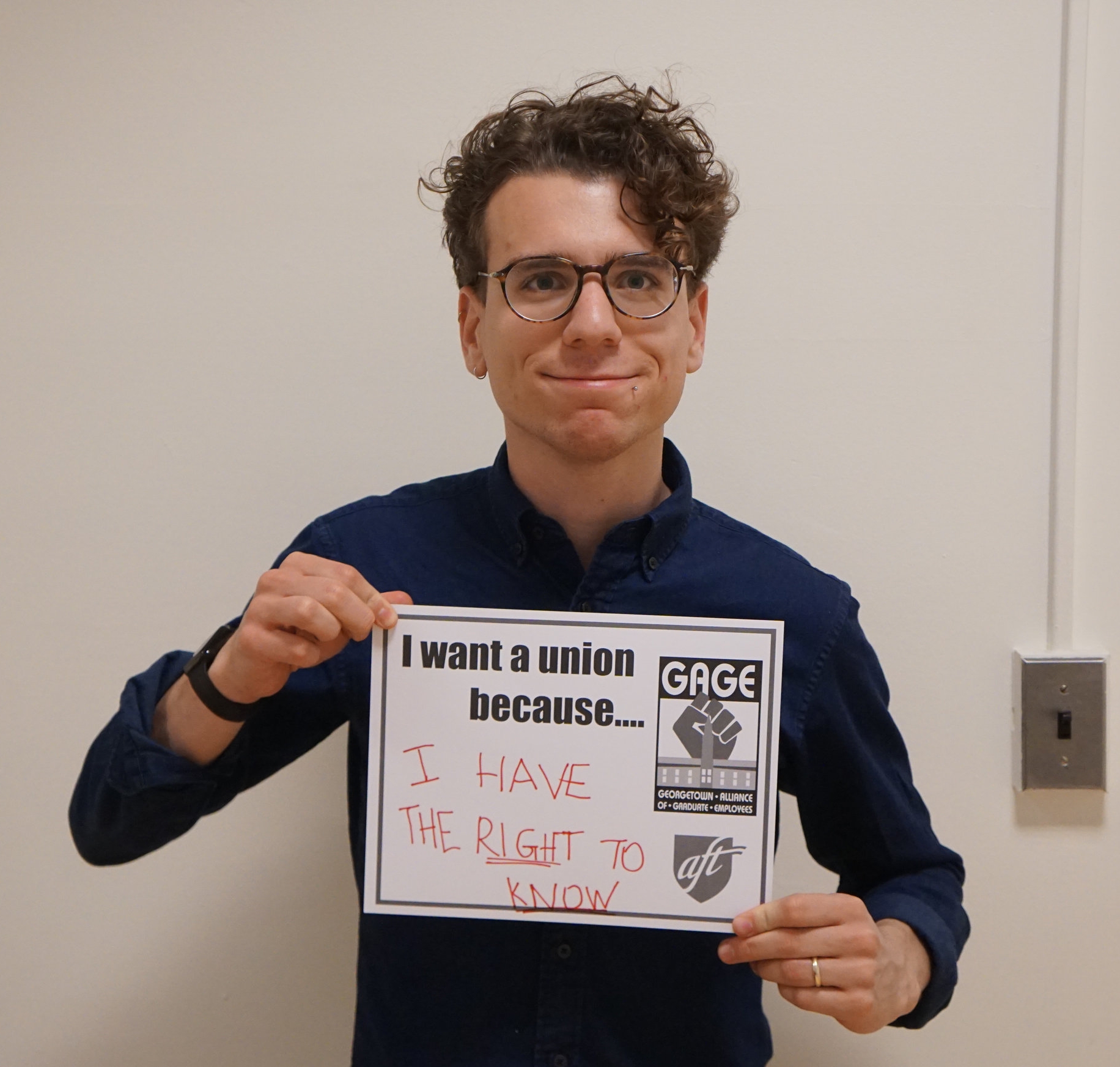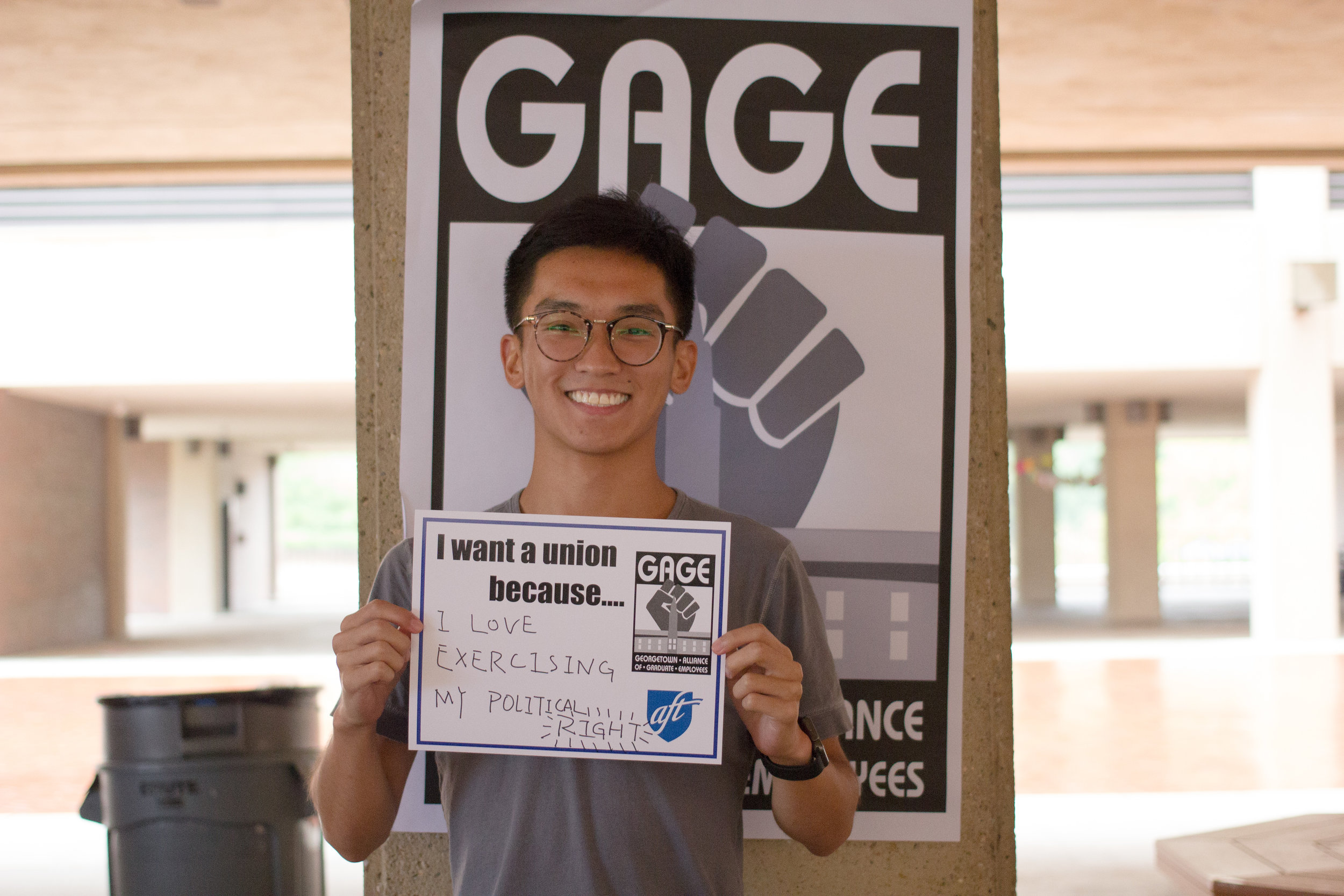Our History
Today GAGE is a strong union and bold organization for graduate student workers. This is the result of years of grad workers listening, finding solidarity with each other, and organizing across all departments and all corners of the Main and Medical Campuses. Every step has been driven by graduate employees, democratic, and open to any worker who wanted to contribute.
May 2020
After thirteen months of bargaining, organizing, and activism, we reached an agreement on our first contract with Georgetown University on May 1, 2020. Read AFT’s Press Release. On May 8, 2020, we ratified our contract with a 99% YES vote! Details here.
“Graduate workers at Georgetown University have signed their first-ever labor contract, winning significant wage and benefit improvements to help them weather the coronavirus, combat the spiraling cost of living in the nation’s capital and provide sorely needed job security in uncertain times.”
November 2018
We voted decisively for a union, with 555 YES votes to 108 NO votes. On Nov. 9, we delivered their intent to bargain with the Georgetown administration.
April 2018
In Spring 2018, we sat down and negotiated an election agreement with Georgetown University Administration. You can see it here. In it, we were able to negotiate that when we win our election, Georgetown must come to the table and bargain in good faith over things like stipend and wage levels, benefits including health-care, leave policies, and fee waivers, hours of work required, and more. You can find it all in the Appendix A: “Mandatory Subjects of Bargaining.” This shows the power of public pressure - we kept demanding not only an election, but evidence that they would come to the table, and we got it!
Fall 2017
Graduate workers from departments across the campus find time in their demanding work, teaching, and research schedules to build community, make connections, have conversations, discover priorities, and plan for the future. We talked to workers from every department, having conversations with a substantial majority of all graduate employees, making their voices and priorities heard, often for the first time.
The vast majority of grad workers we talk to enthusiastically affirm the need for a union and join GAGE. Real community among people from many departments starts to form, connecting us across the campuses in a way many of us wanted but never had before.
We find the majority of graduate workers at Georgetown support forming a union, and we took our campaign public in November 2017!
We receive public support and solidarity to have an election.
Spring 2017
Graduate workers at Georgetown form GAGE! We vote to formally affiliate with the American Federation of Teachers (AFT).
We hold hundreds of individual conversations with graduate workers, finding out what matters to them, what their needs are, and what should be our collective priorities. Through these conversations, we uncover major disparities across departments. For instance, compensation is the same for instructors of record of two sections and teaching assistants of one faculty-led course, while some TAs in the sciences are teaching without any compensation at all.
Graduate organizers of GAGE advocate that the Georgetown administration provide support for graduate employees and undergraduate students and workers affected by President Trump’s travel ban.
wHY GAGE WAS FORMED
In 2015, if you had randomly stopped grad workers walking through Red Square, across the Med Campus, or heading to the GUTS buses and asked them how their experiences had been so far, you would have gotten a huge array of answers. However, if you’d asked them what the conditions were like for any other grad worker, in any department besides their own, you would likely have received blank stares in return. As Karen, a grad worker in the Philosophy Department, put it, “I had no idea how things worked in the departments on the floors above and below me, much less across campus!”
Grad workers were siloed in their departments and the circumstances of their lives were often established by ad hoc and inconsistent policies. This isolation hampered building meaningful interpersonal community, producing innovative interdisciplinary work, recognizing shared concerns, and--crucially--discovering that some people were being treated unjustly and didn’t even know that their situation was especially exploitative. A grad worker in the Cognitive Science Department was horrified and said that they had no idea that grad workers like Tim in the Spanish & Portuguese Department taught TWICE as much as other grad employees, for less pay. Exploitation and inconsistency thrive when people are isolated.
Another galvanizing moment revealed how little say graduate workers had in the issues that affected our lives. In the summer of 2016, without consultation and without advance notice, the Graduate School of Arts and Sciences unilaterally changed PhD employees’ contracts. The changes included an increase in hours one could be required to work without a proportional pay increase, and the elimination of the option to do additional paid work for professors, journals, and more. On this issue and others, when individual grad workers, or even small groups from one department, would voice their concerns, the administration could easily dismiss their claims as idiosyncratic and unimportant.
In response to unilateral, unannounced change to PhD employees’ contract, the founders of GAGE collected over 300 signatures for a petition that we deliver to the Graduate Dean’s office. These efforts forced the Graduate School of Arts and Sciences to place a moratorium on their exploitative proposed changes to our contracts.
As an informal, volunteer-run group, the founders of GAGE surveyed PhD workers about their experiences and discovered that hundreds of graduate employees were interested in forming a union.



